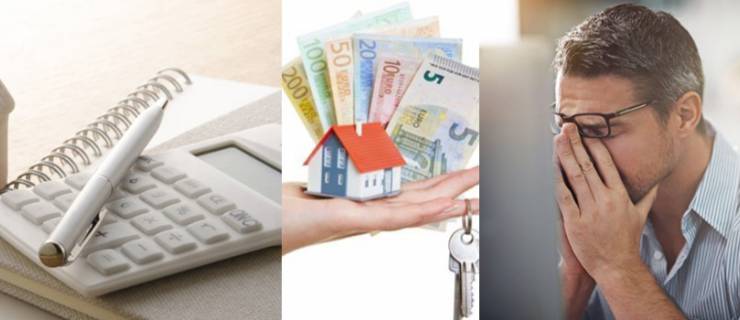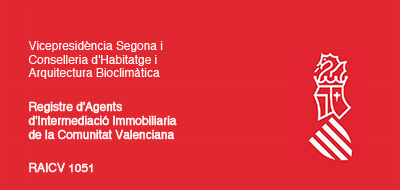Selling your home: what you need to know

You have decided to sell your home in Spain. An impacting decision! You are going to get rid of one of your assets. It will bring cost, uncertainty, doubts, time, energy and emotion. Later in this blog we will talk about the cost involved. But let´s take off with the necessary paperwork.
Which documents do you need to sell your property in Spain
In a land where they more or less invented bureaucracy you need more than 1 paper.
Below an overview of documents that are mandatory to sell your property.
Title deeds to the property
A very important document to change the ownership of the property in Land Registry. When there is a buyer for your house your lawyer will ask you for a copy of the title deeds. Be aware: a copy! Original is not necessary. Do not wait until the end. Best is to retrieve this copy when you put your property on the market. Do not panic if you cannot find it. There are several ways to retrieve a copy of the deed. If you bought the property with a lawyer there is a good chance, he has a copy. If you bought it with a mortgage you can check with the bank if they still have a copy. And otherwise, the notary that you used can provide a copy. If you forgot the name of the notary there is a good chance you will find this on the Nota Simple. The title deed is important to draft a private purchase contract. To calculate and declare taxes. And to draft the sale deeds.
The Energy Performance Certificate
Since 2013 you need an Energy Performance Certificate or EPC. Without this document it is impossible to sell. The EPC is a report stating the efficiency of a house´s energy consumption. The house gets a rating in the range from A to G. A is the most efficient one. A qualified certifier issues this certificate. This can be technical house engineers, architects or surveyors. They will register with the registration taxes and authorities. Besides the efficiency rate the owner receives advice to improve the energy efficiency. A certificate is valid for 10 years unless there were changes made to the property. The costs for this survey are depending on the size of the house and varies between 100 and 500 euros. Costs are for the account of the Seller. It is possible to deduct these costs for the capital gains tax. Orange Villas works together with a qualified and reputable company to get the EPC.
Proof of Cancellation of the Mortgage
If the mortgage is repaid, it is enough to show the document proving this. If the mortgage is not yet amortized, you need to cancel and pay. Like this the new owner can register the property on his name. You do this at the notary when you register the sale.
Latest paid bills
The seller has to provide copies of the latest paid bills. Think of gas, water, electricity etc. Payments have to up to date to sell your house.
IBI
IBI (Impuesto sobre Bienes Inmuebles) is the Spanish Property Tax. Every property owner has to pay IBI. It applies to residents and non-residents. The IBI varies per town hall. The rateable value of the property is the basis for the IBI. The seller needs to handover a certificate that proofs that the payments of the IBI are up to date. You pay the IBI once a year. Seller and buyer will come to a private agreement about the amount of IBI that each party has to pay (in proportion).
Cedula de Habitabilidad
Or Habititation Certificate. A document that states that the property meets the town hall´s habitability requirements. The town hall issues these documents to a builder when he finishes a new construction. It expires after 5 years. Then the owner of the property has to renew the certificate. In that case the town hall will issue a “licencia de segunda ocupación”. An important document as the buyer cannot take over your water contract if you do not have it.
Community related documents
This only applies if you sell a house in a community with shared common facilities. In this case there is a Community of Property Owners. Each homeowner in the community has to pay communal fees. The costs cover f.i. maintenance of gardens, pool, gym, the building. The administrator of the Community has to issue a certificate of payment.
The buyer needs to receive a copy of the statutes and rules of the community of property owners.
Inspección Técnica de Edificios
The Inspección Técnica de Edificios (ITE) applies to buildings that are more than 50 years old. It is a regular control to check the conservation and the condition of the building. An evaluation of health and safety, accessibility and decoration conditions. If you already had this inspection you have to supply the document that certifies it.
So, this is all the paperwork that you need to sell your property. But what about the cost of selling a property. Who pays what? Let´s shine a light on this important subject.
Cost involved when selling a property
Cost for obtaining documents (Seller)
If you do not have the correct copies of the documents mentioned above, you definitely need to get them. And of course, you have to pay for these. But, as said, without them you cannot sell the property.
Capital Gains Tax (Seller)
The Capital Gains Tax (CGT) is a tax on the profit you´ve made with the sale. So, the sales price minus what you paid for it according to the notary deed. The CGT rate varies depending on the amount. In 2021 it varies you pay between 19, 21, 23 or 26 %. It is possible to deduct some cost, like agency fees, before making the calculation.
You live more than 3 years in Spain and you reinvest the money from the sale of your main home to buy another main home. In this case you do not have to pay CGT. Condition is that you have to live in your new main house for at least the next three years. If you are older than 65 years you do not need to pay this tax. If you sell a house that you bought before 1995 you can also get a tax reduction. Rules and regulations keep changing. Therefor we recommend getting in touch with a financial advisor.
Non-Resident Retention (Seller)
You sell your house, and you are a non-resident. In that case the buy% er of your property needs to keep 3% of the sales prices in the Notary Deed. Buyer has to pay this amount to “Hacienda” (the Spanish tax man). The Seller can claim a refund if his tax liability is less than 3%.
Plusvalia (Seller)
A tax based on the increase of the value of the land the property is on. The calculation of the Plusvalia is based on three things. First, the location of the property. Second, the value of the plot in the cadastre. And third, the period of ownership of the property. You pay this tax to the local town hall. By law, the Seller pays the plusvalia. But, if both parties agree, the Buyer can pay the Plusvalia as well.
Agency Commission (Seller)
If you used an estate agency to sell your property you have to pay the agreed commission. In our region most of the time this is 4 or 5% (depending on whether it was an exclusive listing or not). In exceptional cases other percentages apply. It is possible for the seller to deduct this fee from the capital gains tax.
Mortgage Cancellation Cost (Seller)
Of course this only applies when you have a mortgage on the property.
Legal Fees (Seller and Buyer)
We recommend for both seller and buyer to hire the service of a reputable lawyer. One who knows the ins and outs of the Spanish law. The lawyers will work together to fix the deal and get the paperwork done.
Notary Fees (Buyer)
These are the costs relating to the deeds (Escritura). Nowadays, it is common practice that the buyer pays these fees. The selling price mentioned in the deed determines the fee.
Property Transfer Tax (Buyer)
The Property Transfer Tax (PTT) varies from region to region. The cadastral value for each municipality has direct influence on the PTT. You pay the PTT when you bought a second-hand property. In case of a new build the buyer pays IVA (VAT) of 10%. On top of the IVA, you also pay a Tax on documented legal acts or IAJD. IAJD stands for Impuestos Actos Juridicos Documentados.
Property Valuation Costs (Buyer)
If a buyer needs a mortgage, the Bank has to make a valuation of the property.
This appraisal is for the buyer´s account.
What YOU can do to speed up the sale of your property
Many factors influence the speed of the sale of a property. Some are beyond your control. Some are not. Below a few tips that might help.
Dress your house
In another future Blog we will tell you more about this topic. Take personal stuff away and redecorate in neutral colours. Also, ma sure there are no signs of the presence of a pet etc.
Market your home well
Choose for an experienced, reliable and reputable estate agent, like Orange Villas. Best is an agency that works with a professional photograph to get the best shots of your property.
Documents
Don´t complicate the whole selling process by not having the right documents. Make sure you have a complete paper pack ready.
Realistic pricing
Do some research yourself in this respect. And listen to the advice of the estate agent as they know the market. If your property looks good and the price is market confirm, you cannot lose.
One last advice: do not get overwhelmed or stressed. An estate agent like Orange Villas knows the job to in and out. We will assist you selling your property. We can bring you in contact with excellent lawyers, currency brokers and architects. If you have a property for sale we are more than happy to add it to our books.










